Somewhere in the course of cooking a new dish, you have a eureka! experience, a mental bang moment where it all comes together and you realize that you indeed have before you your goal, the dish imagined. During a technical sauce-making class at the cooking school La Cuisine Paris (indeed in Paris), I had six of these.
Some travel experiences are so cliché that I avoid them just on some principle I imagine I possess, though they are always fun when I’m forced into them. The night cruise on the river. Riding a camel. One other such activity is a cooking class, because I’m snooty. I imagine, from the prose in the descriptions and from reviews online, that most cooking classes for tourists are light-activity fun days where the instructor does most of the work and students stand around and gently perform a few tasks, probably while sipping wine, and then receive certificates at the end no matter how well they do. This is likely fun, but I’m hesitant to pay for it. From my searches, most classes seem to be just cooking lunch, often with a trip to the market first to buy ingredients, meaning one has no advance idea what you’ll be learning, and I’m too structured of a soul to endure that. Plus, I already know how to go to a market and buy things.
What changed my mind about some cooking instruction was the designation “technical classes”. I want something specific, like methods for cooking fish or making sauces. Fish I didn’t find, but sauces, yes. Probably one of the best is done by the Cordon Bleu school, but it lasts three days and costs a fortune, which cuts into my wine budget. The class is in French, and although I’m comfortable with it chatting in a café, I’m not up to speed on cooking banter. I don’t know how to ask “Chef, should I vary the rotation motion of the whisk to be more effective in smoothing out the lumps?” in French.
An organization called La Cuisine Paris was the winner for my foray into this too-canonical tourist activity, as they had a 3-hour sauce class for €99 euro, were within walking distance of where I was staying, and didn’t have a silly name such as “Cook’n With Class” (That’s a real name of another school).
I like to cook, and I’m somewhat serious about it. I do not like to spend time on a light instruction session that is mainly designed to be a fun activity. I want information, and to be able to prepare it myself. Sauces appealed to me because they can go with anything and they’re hard. I worked at a little bistro in Louisiana ages ago as a line cook, without any training, and it’s always been the sauces that fascinate me.
Just before 9:30 on a Saturday morning, we would-be saucier students sat somewhat awkwardly in the waiting area of the school, a room flanked with aprons and shopping bags for sale, along with a bookshelf stocked with the latest cookbooks. I was flipping through one of David Lebovitz’s offerings (he’s one of my heroes), when the instructor called us downstairs. We stood in a small room around a large central island.

The class setup, with Lise our instructor clearly drawing us in
Lise, our instructor for the session, is half American, half Danish, raised in Hong Kong. Though a native English speaker, she was showing the expatriate habit of needing to search her brain to remember certain English words, a charming trait. She seemed young but quickly ran down some of her experience, including cooking school in Paris (École Grégoire-Ferrandi) and working at several restaurants. She had the archetypical attitudes of a chef, such as keeping work areas clean. There were eight students that morning, which seems the maximum for this class (other classes can have a few more). We each had a plastic apron upon which we were instructed to write our name so that Lise could yell at us specifically. We went around the table introducing ourselves, all Americans except for one Hong Konger, and discovered that five people just happened to be from Iowa.
We each had before us a plastic cutting board and a very small knife (we would cut nothing but shallots), a sheet with the recipes (for use there and to take home), and a pencil. We were learning eight sauces that morning. I was focused on the hot sauces (hot meaning temperature, not spicy), knowing already how to make a basic vinaigrette and not being a dessert person. Our sauces were:
Cold sauces: vinaigrette, mayonnaise
Hot sauces: béchamel, port wine, red wine reduction, béarnaise
Dessert sauces: chocolate, salted caramel
We are working in pairs for this class, each pair collaborating to make each sauce, meaning you won’t do each step of it yourself. I would have preferred to do the work all on my own, but the dynamics of having a partner does add something. You can check each other, and the guesswork is halved. My random partner was Joanna, simply because she was the person next to me. From reading online reviews, it seems many of their classes pair you up, so sit next to someone you can work with.

Our instructor, obviously making a point about the butter and milk next to her. One phrase we all learned was, “Oui, Chef!”
We are constantly grabbing bowls and whisks, washing them out, and after each sauce is done, everyone’s bowl is combined into one, which we’ll use to eat something at the end. Sampling en route is de rigueur. For each sauce, Lise demoed the technique, and then partners worked together to duplicate. The recipe sheet listed specific measurements, but Lise simplified that down to spoonfuls, and for the more complicated sauces, Lise has each ingredient already measured out in a plastic cups, so we could just dump them in. The measured cups were convenient, but I feel that took away something. Being able to cut your own measurement of butter should be part of sauce-making training.
Our first sauce, a vinaigrette, is one of the easiest, and if you don’t know how to make one, look it up (here’s one link, but any will do as long as they don’t simplify it down to just vinegar and oil) and try it. You almost can’t mess it up. After one try you’ll have it, and then forever wonder why anyone would buy salad dressing in a bottle. Lise used a lot more mustard than I would, resulting in a very tangy taste, and here is where one approach of the class came out–these French sauces were designed for French meals. In the U.S., salads start a meal. In France, they’re an interlude between courses, and thus are tangy to cut the richness between the other foods.
Mayonnaise, next, was always something that scared me, with its reputation as being tricky and breaking, but it’s largely vinaigrette with an egg yolk. Mine came out less firm than that of Lise, and much less firm than a jar of Miracle Whip, but this is good. I wasn’t terribly impressed by the taste of what we created, but it’s good to know that mayonnaise can be whipped up so fast.
Next were the hot sauces (temperature, not spicy), roux-based and reductions. After the first one, béchamel, it became clear that these sauces aren’t nearly as difficult as they seem, as long as you do things in order and use the right proportions. Here’s where the already-measured ingredients came into play. La Cuisine Paris measures the ingredients in advance because there are many other things to learn in the class, and they want the focus to be on learning correct textures and cooking methods. For me, they seem to prevent us students from common mistakes, such as using too much flour for your butter, something I always do at home. What this taught me was to stop eyeballing my ingredients at home, and actually measure them.

Many of your sauces will look something like this
One reason restaurant meals taste better than home meals is because restaurants aren’t afraid to use the things that make food taste good, such as salt and fat. A few of our attempts tasted lacking until we added another few pinches of salt. Several of the hot sauces were finished by adding a ton of butter, what the French called “monter au beurre”. Julia Child supposedly said (at least in that one silly movie), “You can never have too much butter.”
The large challenge in the class is the béarnaise, a sauce formidable, that needs three steps and lots of butter to finish. I was better at whisking than my partner Joanna, and I beat the egg yolk like mad as she added everything. It’s impossible to make these sauces without a whisk. Moreover, the better your whisking muscles twitch, the better sauce you’ll get. Joanna and I focused on our béarnaise like a laser and blimey, it came out near-perfect, according to us. We jumped up and down, flushed with deserved victory, delightedly and repeatedly tasting our finished sauce. Producing a fine béarnaise will make one feel like a success in life, a validation of existence. A bad person could never produce a béarnaise.

Our superb and brilliant sauce béarnaise. Life has a purpose after a sauce such as this.
Continental European food is more canonical than that of the English-speaking world, and Lise displayed that attitude. “Does a béarnaise have to have tarragon?” someone asked, and Lise without hesitation replied, “Yes”. An American wouldn’t hesitate to think about some other herb, but to the French, a béarnaise has tarragon, point. All throughout the class we Americans had been asking about variations and substitutions, being rebels.
Six savory sauces down. Here we stopped to taste them all, comparing. Lise handed out salad and some crudités (carrots, apples, and such) along with all our collective sauce bowls so that we could taste them all together. We all made plates, a mini-lunch, and sat dipping and munching. We the students did not make the dessert sauces–Lise demoed them in front of us while we scoffed our crudités. The chocolate sauce was ridiculously easy, almost a throw-away, but the caramel was trickier and its flavor more distinct. Lise told us this caramel sauce would end any domestic dispute. Make the sauce, argument is over.

The caramel sauce starts with water and sugar. Magic follows.
We all left the class happy and full of more butter than when we had arrived. Lise had given us platefuls of information throughout the class, such as the proper stance when whisking, which sauces could be held, and advice about buying wine.
Back upstairs, I talked to Molly, one of the people working at the school whose title I forgot to ask. Their most popular classes, she told me, are those focused on making macarons, croissants, or baguettes. La Cuisine Paris also has the “visit the market and then make lunch” type of classes, as well as specific neighborhood walks (such as Les Halles) where you visit foodie points of interest. Several of today’s students were on their second or third class, and they had nothing but good things to say.
Being the snark that I am, I’ve searched my brain to say something caustic about my experience there, but indeed there was little. My largest criticisms, just for me, would be the lack of other technical classes available, and the school’s concentration on crowd-pleasing offerings, particularly sweets. Example: One of their classes is a tour of the Marais neighborhood, where (from their description) you will have a drink, pick up some charcuterie, some cheese, and bread, and have another drink. The idea is to get to know the neighborhood, and I’m certain lots of descriptions and stories will flow en route. The prose in their description of the class is a bit happy-talk, and doesn’t inspire me. (Actually, their whole website needs a good editor.) I’m sure I’m decrying the experience more than needed, it’s probably fun, but I can’t see paying for that.
I would love a class focusing on, say, making soups, or fish preparation, but La Cuisine Paris is for having a fun but good class to learn something while you’re on vacation in Paris, not for very serious work. Head over to places like Cordon Bleu for those, but you’ll need more time and more money. The sauce class I took at La Cuisine Paris was excellent, and just what I wanted.
From other people, I’ve heard that the instructors at La Cuisine Paris are superb at follow-up communication. You can email further questions to them (even photos), and they’ll respond.

At the end, we sample our sauces, an act that doubles as lunch
The final information from the school was a map of the area, given to us students as we left, that marks particular foodie spots such as culinary supply stores, recommended restaurants, and pastry shops. Especially pastry shops. This is not throw-away information. I took a walk that afternoon using the map as a guide and discovered it was gold–I found a million things. Take it and use it.
Another travel blogger I’ve had contact with, who writes the excellently-named Beer and Croissants blog, has written up a description of the croissant-making class she took at La Cuisine Paris, if you’re interested in reading more.
La Cuisine Paris
Address: 80 Quai de l’Hôtel de Ville. 4th arrondissement, Paris.
Metro: Point Marie (line 7), Hôtel de Ville (lines 1 or 11)
Email: contact@lacuisineparis.com
Cost: most classes are between €80-160, usually depending on the length. Private group classes can be arranged.
Bring with you: some sort of camera (like your phone) because you will want photos of your creations, and a pen and extra paper if you’re a prolific note-taker. You need nothing else.
Their classes fill up. Sign up at least a few weeks in advance.
If you love Paris, consider my photo essay of Parisian Cafés, or a writeup of famous cafés in general, or perhaps my thoughts on the Parisian cuisine scene.
Wondering what to do on Paris on a Sunday? Interested in the natural wine scene in Paris? And did you ever wonder why damn near every city in the world is called the “Paris of the East” (or West, or whatever)?
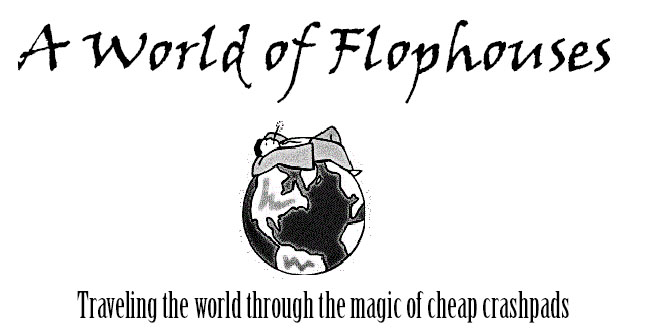
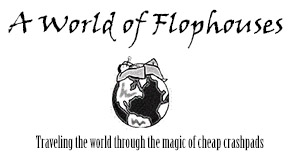
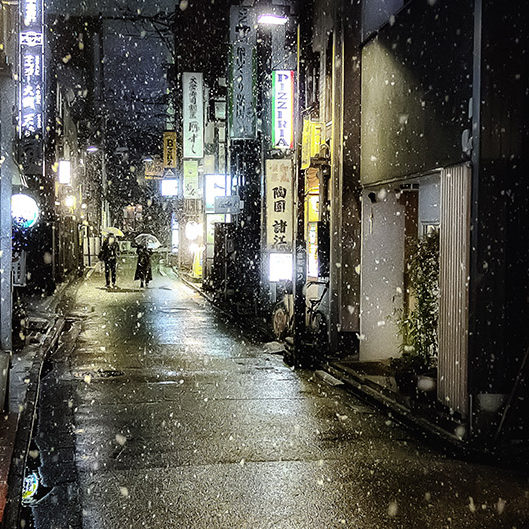
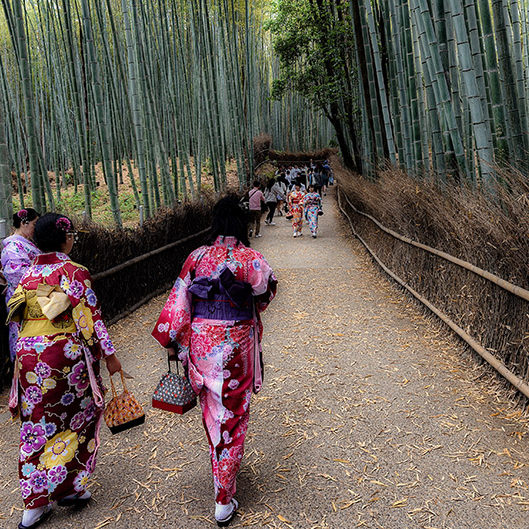
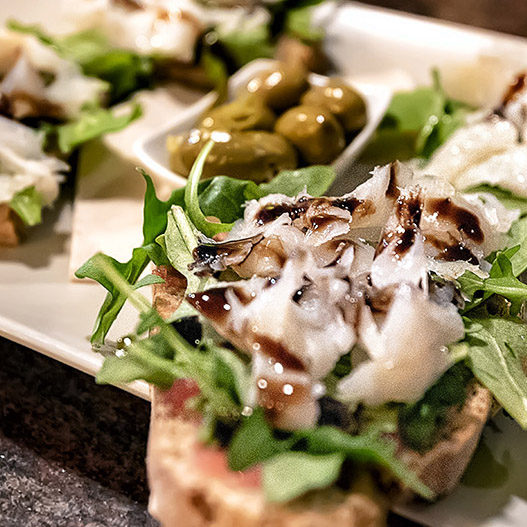
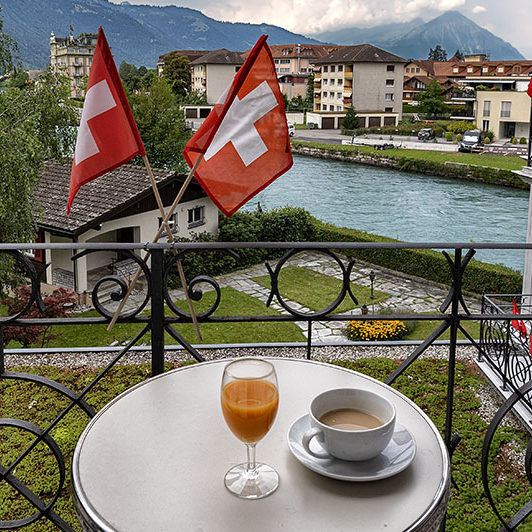
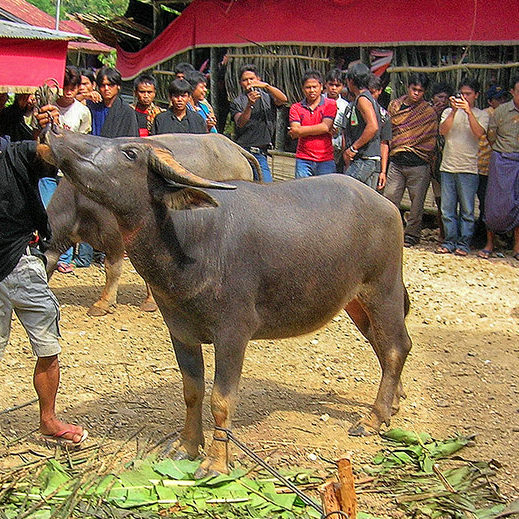
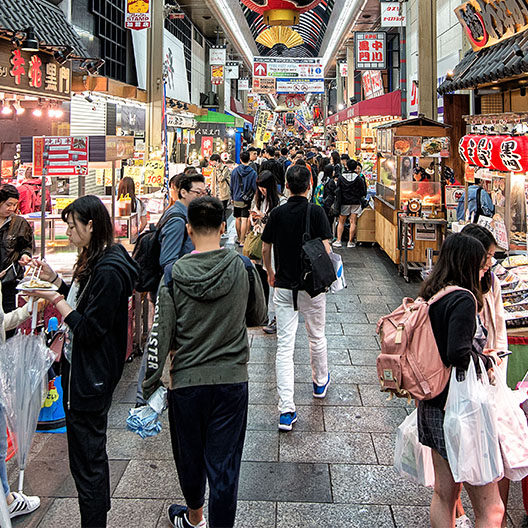


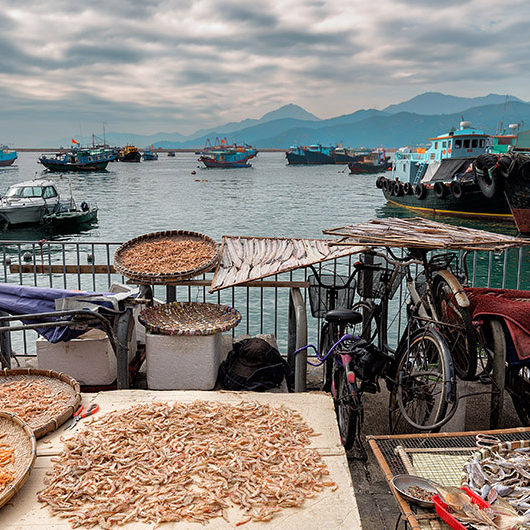
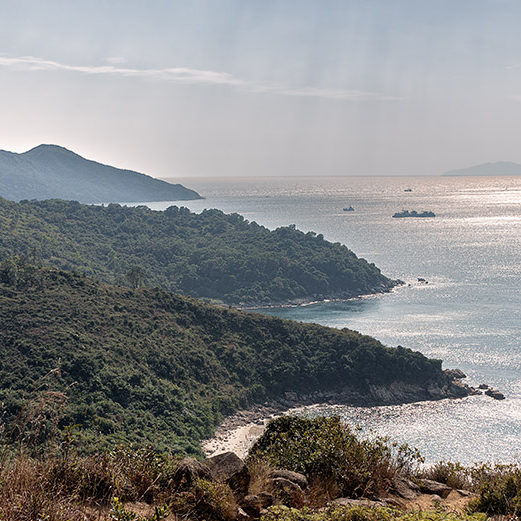
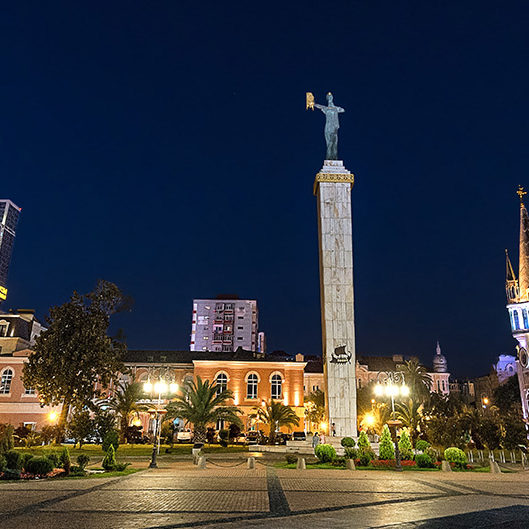
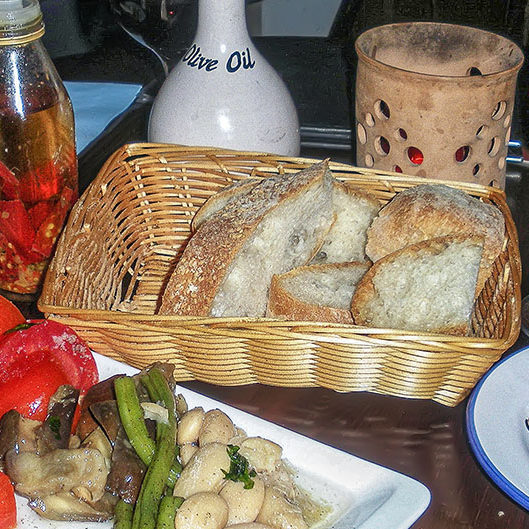
Tom, superb article as usual. I really love that you were a sceptic and have found something worthwhile. I am very similar when it comes to cooking classes. I’m a control freak, so hate others sharing my recipe 🙂 And I am there to learn technically so that I can come back and make it again. I have been twice now and have still been the only person each time taking photos and copious notes. I actually followed up my croissants article with a technical writeup of how to make them, based on that class. You are so right about the info given at the end of the class too. I visit those stores every time I am in Paris now and always come away with a suitcase full of ingredients that I can’t get at home. The sauces looked amazing. I always remember French chef and writer Julia Childs saying that once you learnt how to make the basic french sauces you could make anything, and I think she’s right. Thanks so much again for sharing my article as well. Cheers, Kerri
Oh I love this. Your style of writing is great. I also love when a skeptic can admit that yes, I now have a different perception of things. That sauce béarnaise looks amazing! I am going to be back on this blog for more reading! Love it.
Those are some of the best compliments I can get.
I love this article very much and I find myself soaking up the information. I’m not an excellent or even a great cook, more like a mediocre one so this has pique my interest. Great looking sauces and I wonder if I’ll get proficient in making them. Proficient is the word I used because I don’t think I’ll be that good to become sauce savvy expert.
I did something very similar in Paris . These activities are great for a team building exercise as well !
This is such a wonderful article. It is experiencing vacation in an entirely different way. Now when I think of it, I should plan another trip to learn all about the french sauces which are absolutely delicious. 🙂
I agree with you it is strange to make one sauce with two people. I just always find it is easier alone. But it is such a neat experience to participate in a Cooking Class in a different country, and besides it is nice to get to know people on travels so that is a plus point working in Partners.
Lots of people are responding to the idea of pairing up, in the same way that I did. I’ll repeat that it does indeed add a new dimension, as you’re both guessing together on the timing and proper consistency and such. Having a partner helps in the timing and evalutation, but yes, I think most people would rather go at it alone. It’s not a deal-breaker for the class.
I have attended some sessions like this but it has been always an independent participation. Probably pairing up does have some advantage.
I’ve always loved to cook and I am not bad at it. This said, for me right now, paying 100 euros for 3h of learning how to cook sauces….. mmmm… It’s still too much. It seems like you had fun during the lesson though! Mind sharing some of those foodie spots you got from the school? Specially about pastry =)
It’s expensive for me too, and that’s one thing I had to overcome. The go-to-the-market classes, for instance, and the food tours, I wouldn’t pay that kind of money. Probably not the specific classes, such as the croissant and such either. I think you need find one thing that speaks to you, like sauces do for me. Absolute lovers of croissants might feel the same way, and then you’ve got croissants under your belt for life, if you want.
Let me dig up info on pastry spots and I’ll get back.
Great article, I’m not a great cook myself, but the results look amazing!
“A bad person could never produce a béarnaise.” — words to live by indeed. I thoroughly enjoyed this post, I found it quite refreshing. I’ll have to bookmark this, next time I’m in Paris. My husband would enjoy this class, hopefully in the future they’ll add soups, because he’s forever in the kitchen concocting something. 🙂
I once had such a eureka moment while learning how to cook. I was in Kyrgyzstan, it was winter, and I was being taught how to make borscht. Borscht is a beat-based Russian soup. Now, what was special about this is that it was the very first time I made soup from scratch. We copped everything up, we put it in the pot (dry), let the ingredients simmer for a bit, and then we did the CRAZIEST thing. We had to turn this collection of vegetables, meat, and spices into a soup. And do you know how we did that? We added….. WATER! Now, I know this will sound totally crazy, but it simply never occurred to me that water would be a base ingredient of a soup. I just never thought about it, and then all of a sudden I was adding it. It truly was a eureka moment. Silly, I know, but reading your post reminds me very clearly of that fond moment 🙂
Hey, eureka is eureka no matter what it is…I think that’s a neat story.
Yummm I love cooking classes and can’t think of a better activity for Paris! Plus your end product looks so pretty.
What a wonderful post! This made my tummy rumble – thanks so much for sharing!
What a great idea! I have heard about cooking classes before, but never about a sauce class. It sounds like a lot of fun, especially that you get to taste them at the end. I would like to be in a class where I have to say “Qui chef” all the time, haha 🙂
I am definitely one of those people that want to sign up for a cooking class. So far, I haven’t had a chance in any of my travels but Paris sounds like a great place to have the opportunity. Now I am intrigued to learn to make my own mayonnaise!
This sounds like an interesting experience. I have never taken a cooking class because I’m from NYC so I can take almost any kind of cooking class I want back home and I’d rather do things I can’t do at home when I travel. But of course it would be fun to try French cooking in Paris. I don’t really see the point in being snobbish or avoiding something because it is a cliche. You miss out on a lot of fun that way!
I’m a bad cook and I don’t have even an interest in cooking but glad to see that you had so much fun in your cooking class! It’s always nice to learn about new things on trips!
i love to eat but sadly Im lousy in the kitchen. Parisian way of cooking are quite fascinating, I fins it mysterious. Makin their food soo delish!
Your sauce looks delicious! I’m with you on your opinion of cliched cooking classes, but your class does look super fun and tasty!
This is so amazing!!! And I would love to go to a professional school to learn to cook! One of the worst things for me is cooking sauces, so I really would love to attend a class like you did.
One more reason to be proud of yourself.
I was literally fascinated about your story. This article goes among my preferred once for mainly two reasons: I love cooking an I love attending cooking classes. I noted down the info and I’ll be sure to go there next time I will be in Paris!
I always thought of French cuisine as super complicated. But you made this sound like fun, and a lot more doable than I would have thought. Loved the photos, your instructor looked absolutely intense. I expected her to draw a sword at some point as I was scrolling down.
Such an interesting and fun experience. Very descriptive of the entire class you took. Enjoyed reading it more because I myself am into food and cooking so it was quite an engaging read for me
I love this! Sauces totally can make or break a meal! I’m personally more of a savoury fan so those seem the best to me 🙂 feeling hungry now!
A three hour class for 99€ is not bad. I wanted to take a cooking class while I was in Paris, but I didn’t have time. Seems like you had a great experience. I will keep this class in mind, when I’m back in Paris.
Loved the way you narrated the entire class and even shared the recipe. Now I am tempted to try out one such class. Though I admit that I hate cooking.
This is really nice. I have seen such cooking classes being conducted in various places on TV. I must say it sounds like fun and from your post, I can make out you enjoyed it too.
I haven’t tried doing a cooking lesson in Paris but one of my closest friends recommend me to do it.